Exhibitions
In dialogue with plants using thread and colour
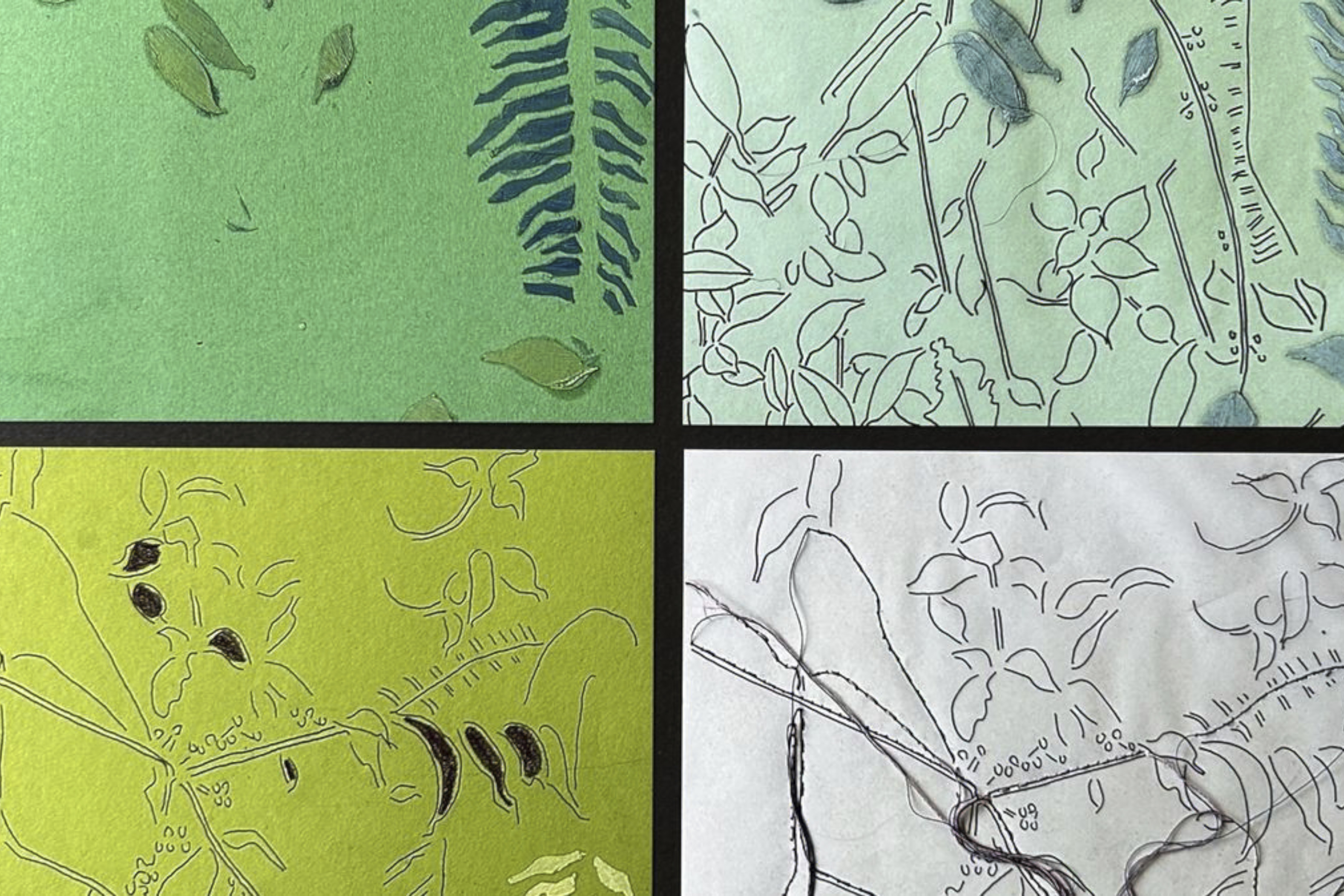
New exhibition 9. Dezember 2025 - 28. Februar 2026
Opening 09.12.2025, 12:30–13 Uhr: Kathrin Fuhr will give an introduction to some of her works.
In this exhibition, we are showing works by the artist Kathrin Fuhr, which she designed in direct encounter with the plants in the Botanical Garden's display houses..
Past exhibitions
Ugandan traditional medicine in transition - Exhibition on a cooperative research project
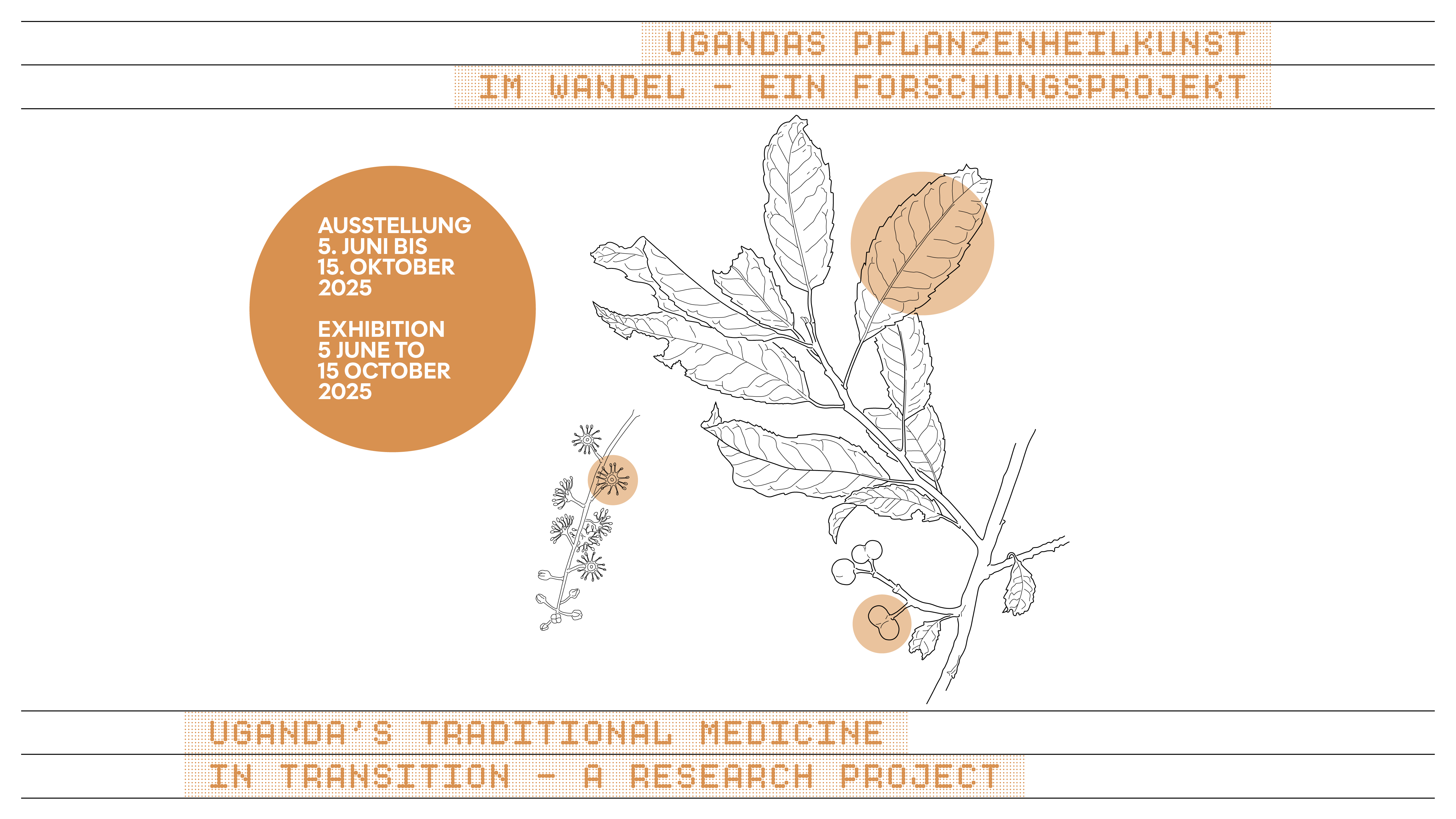
5 June - 15 October 2025, overwintering greenhouse (to the right of the glass domes)
During the Covid-19 pandemic, Uganda’s public healthcare system struggled more than ever. As a result, more people became interested in traditional herbal medicine. The World Health Organization, WHO, encourages African countries to support traditional medicine as an integral component of their healthcare systems.
However, in Uganda, traditional medicine is at risk because natural resources, cultural heritage, and knowledge are being lost. Action is needed to secure its future and further development as an important part of healthcare and cultural heritage. Together with local museums and researchers, the project aims to raise awareness.
ZusammenWachsen - Stories for Future
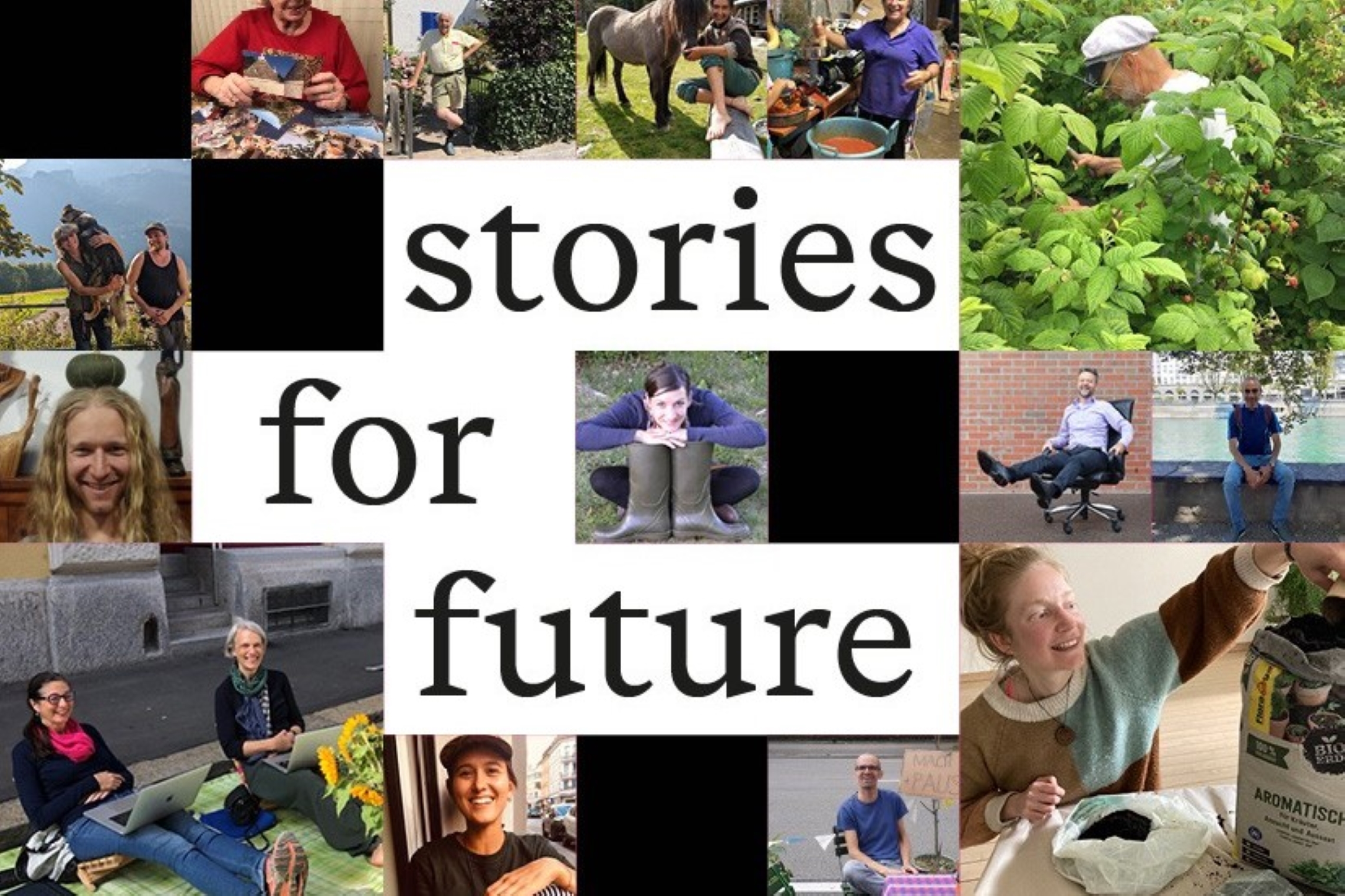
27 April to 31 October 2025, mediterranean garden
The Stories for Future project has been letting people tell positive stories since 2020. Whether craftsman, professor, politician or farmer - almost 200 people have so far told their version of a good life. In a changing world where there seems to be no end to the bad news, these stories paint a common human perspective. The project was initiated by Moritz Jäger, a psychologist, and Gabi Hildesheimer, a biologist. The focus exhibition at the Botanical Garden uses excerpts from the stories to explore the question: What is possible if we grow closer together?
Opening at the spring festival on 27 April at 2 p.m. / Tuesday guided tour on 29 April 12.30 - 1 p.m.
The magic of the Masai Mara - Animals of the savannah - Photo exhibition

1 December, 2024 - 28 February, 2025
In our three show houses, we only show you plants. But which animals live in these regions? In this exhibition, we are focusing on the inhabitants of the Masai Mara. In the savannah house, 20 large-format pictures by Adrian Bieri are on display. Short texts (D/E) provide information about the animals.
The Masai Mara is part of the Kenyan savannah area of the Serengeti and measures a good 1500 square kilometers. The entire area is now a nature reserve. It is known for its many large animals, such as the African elephant, lion, Cape buffalo, leopard and white rhino. Huge herds of wildebeest, zebra and Thomson's gazelle roam the savannah. The birdlife is also diverse and counts around 400 species.
An introduction to the exhibition will be given on the Tuesday tour on December 10 at 12.30 pm.
The Mediterranean flora of the Greek island of Kythera - photo exhibition
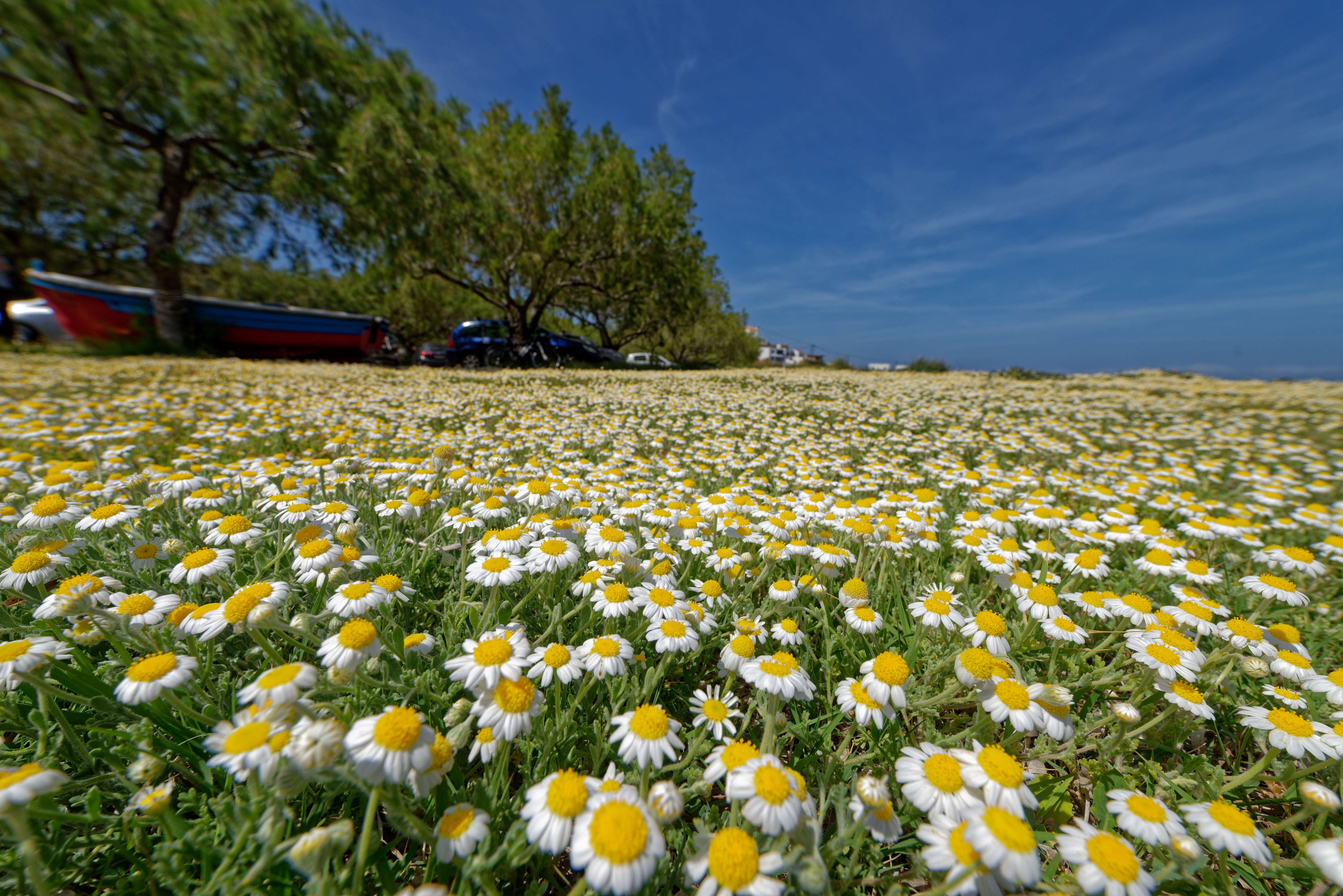
28 April 2024 - 30 October 2024
On the small island of Kythera in the south of the Peloponnese, the colours and scents explode with baroque lushness in spring. Botanist Alexander Kocyan has been travelling to Kythera for years and has explored the island floristically and photographically. He has made some astonishing discoveries in the process. The photographs are exhibited in the Mediterranean Garden. Many of the plants shown in the photographs can also be found directly on site.
Tropical frogs and butterflies - photo exhibition
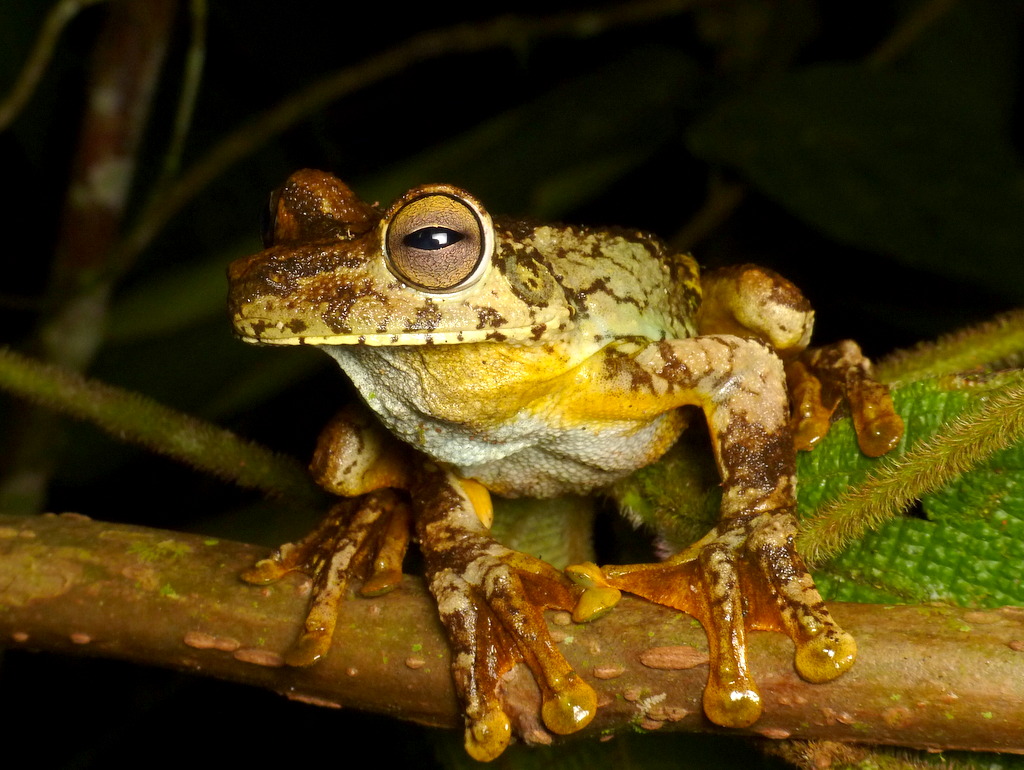
1 December 2023 - 29 February 2024
The Focus exhibition in the Schauhäuser features works by photographer and biologist Andreas Kay (1963-2019). Kay travelled to Ecuador regularly and left behind a large collection of stunning observations of nature in his photos from there. In addition to flowers, his work also focussed on insects, spiders and frogs. We have made a small selection for you.
We would like to thank the named estate of Andreas Kay for the use of the photos.
Animals in the Botanical Garden - Photo exhibition

April 2023 - October 2023
Photographer Nadja Baumgartner has been ‘hunting’ in the garden with her camera for many years. Some photos take hours to capture the right moment. The result is expressive portraits of orb weavers, snout flies, jumping spiders and many more. In the garden you will find 10 works in places where the animals were observed and 10 works at the entrance to the show houses. Short texts provide an insight into how the photos were taken and about the animals.
Gesneria plants - photo exhibition
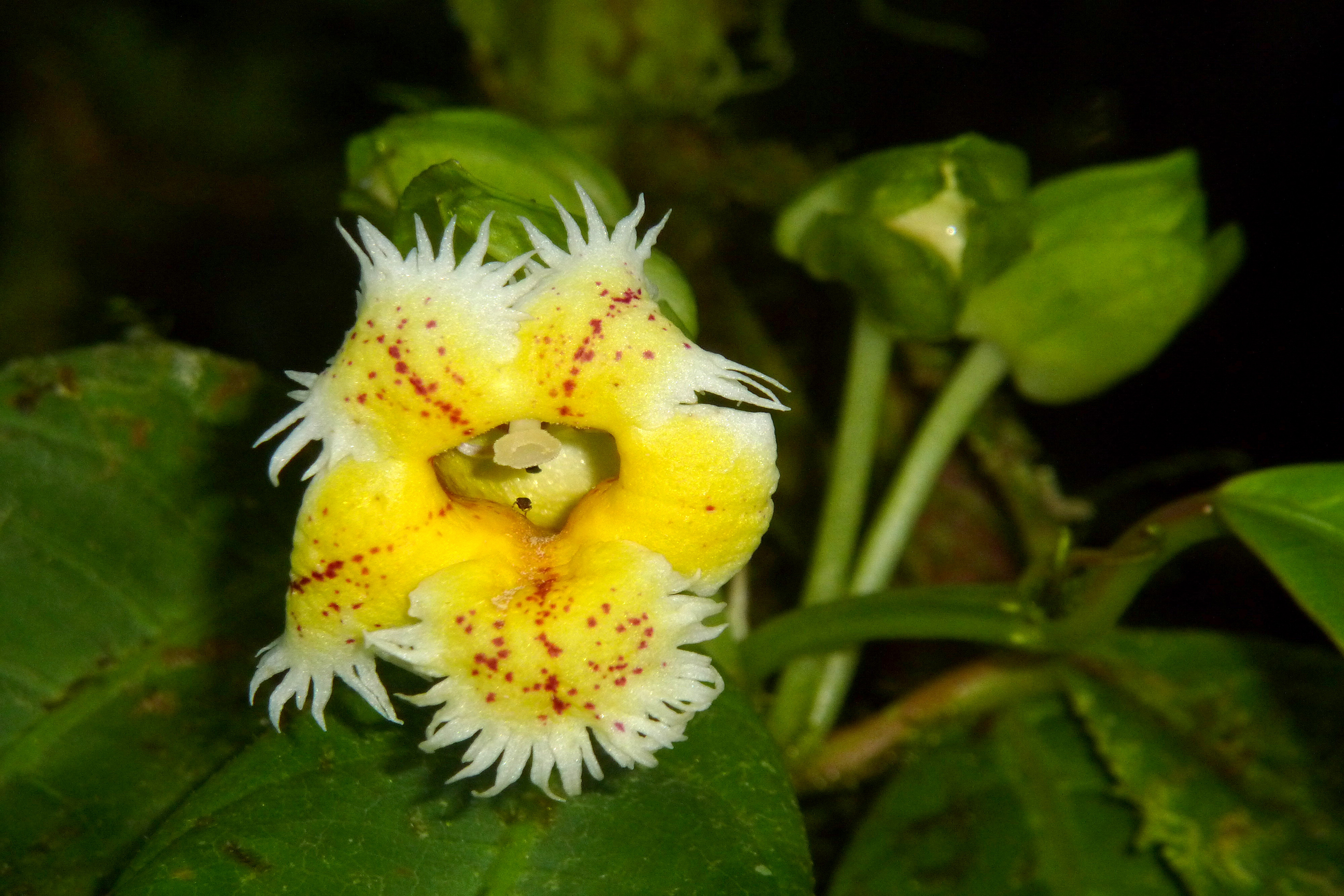
December 2022 - February 2023
The 3000 species of Gesneriaceae (Gesneriaceae) show an astonishing variety of flowers in terms of colour, shape and fragrance. A large proportion of the species, around 70%, are pollinated by hummingbirds. In addition, bee and bat pollination, and rarely vibration pollination, also occur. Probably the best-known species is the Usambara violet (Saintpaulia ionantha), which has found its way into our homes as a houseplant. Works by photographer Andreas Kay can be seen in the show houses, showing the diversity and beauty of the flowers in their natural habitat in Ecuador. Andreas Kay (1963-2019), a German chemist and biologist, travelled to Ecuador for many years.
Animals at the pond
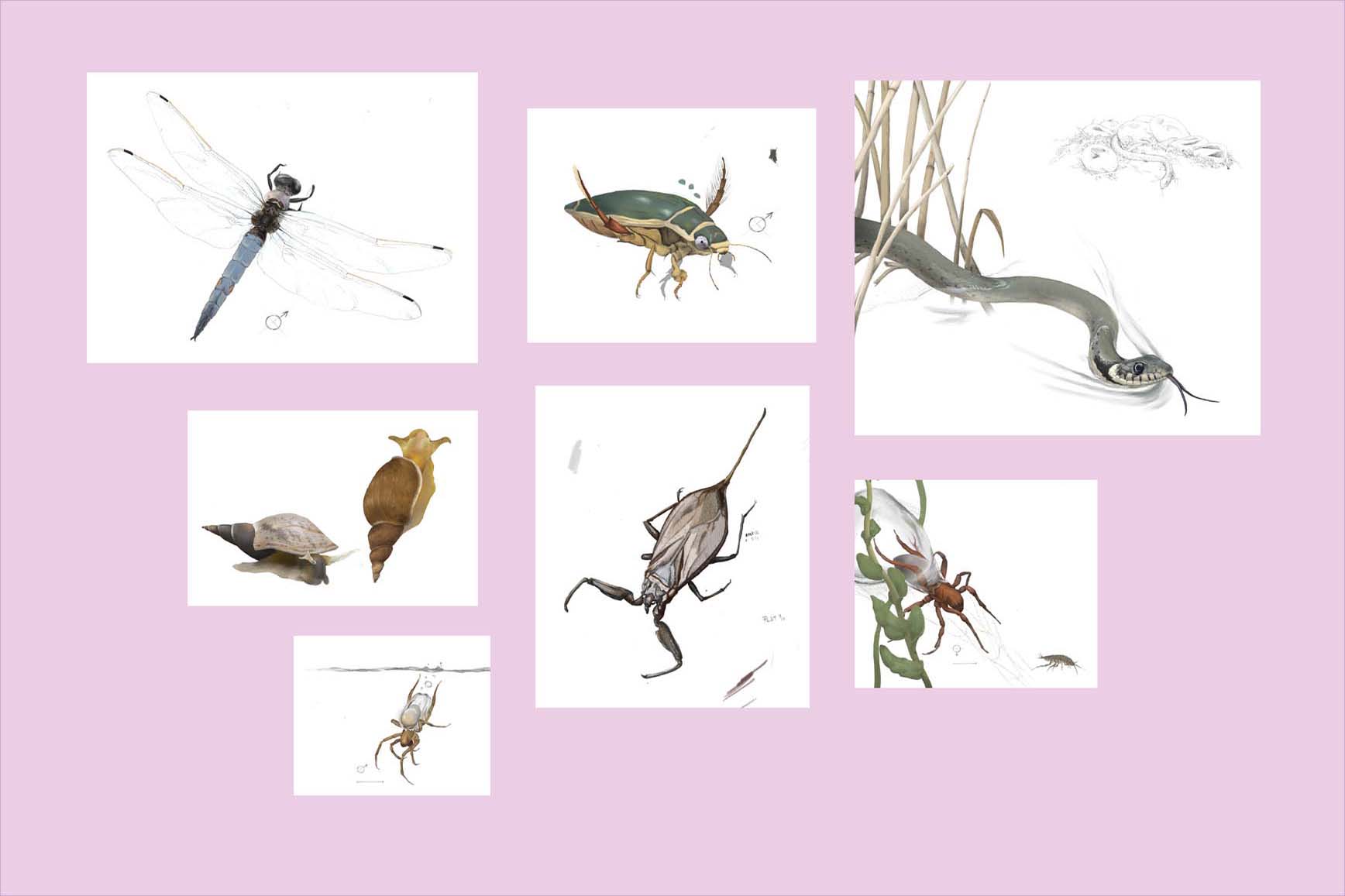
April 2022 - October 2022
The focus exhibition places the more hidden animals on and in the water at the centre of attention: yellow burnet beetle, water scorpion, grass snake, water spider, pointed mud snail and great blue arrow. All of them are associated with plants, whether as food, for laying eggs, for hiding or as hunting grounds.
Oliver Good, then a student at the Zurich University of the Arts, illustrated the animals in various stages of life. Evelin Pfeifer wrote the texts. Water spider (PDF, 2 MB)
Wild bee course
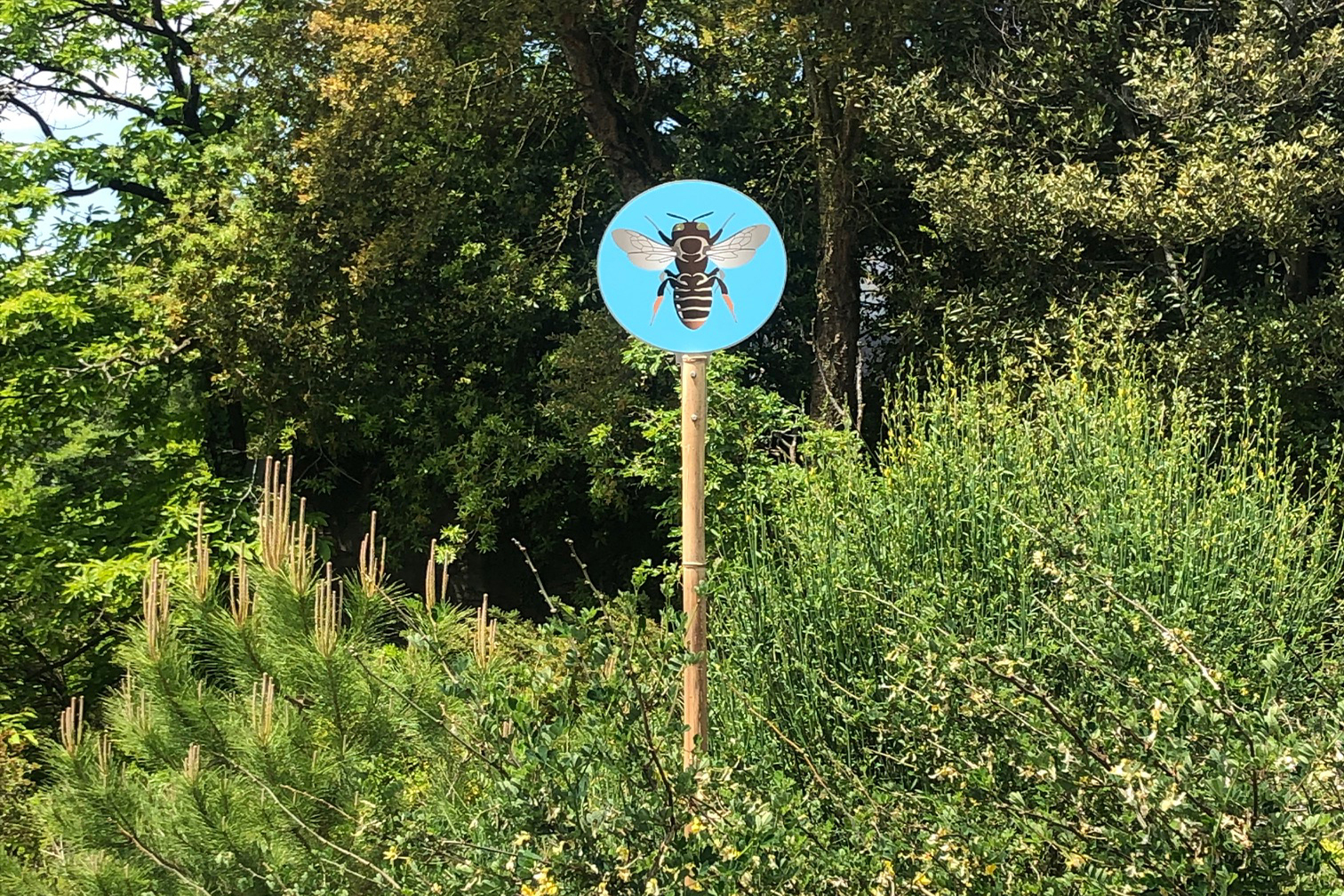.jpg)
April 2021 - October 2021
52 species of wild bees were observed in the Botanic Garden in 2016. The reasons for the diversity of species are the varied range of food and the natural design of the garden. In the Mediterranean Garden, the wild bee trail offers interesting facts about these fascinating animals at 10 stations: Which forage plants are important, which material is suitable for nesting, examples of wild bee-friendly balcony design, dangerous pesticides and how climate change affects wild bees. Leafcutter bee information board (PDF, 648 KB)
‘We are the forest’ - A declaration of love to the Indonesian rainforest
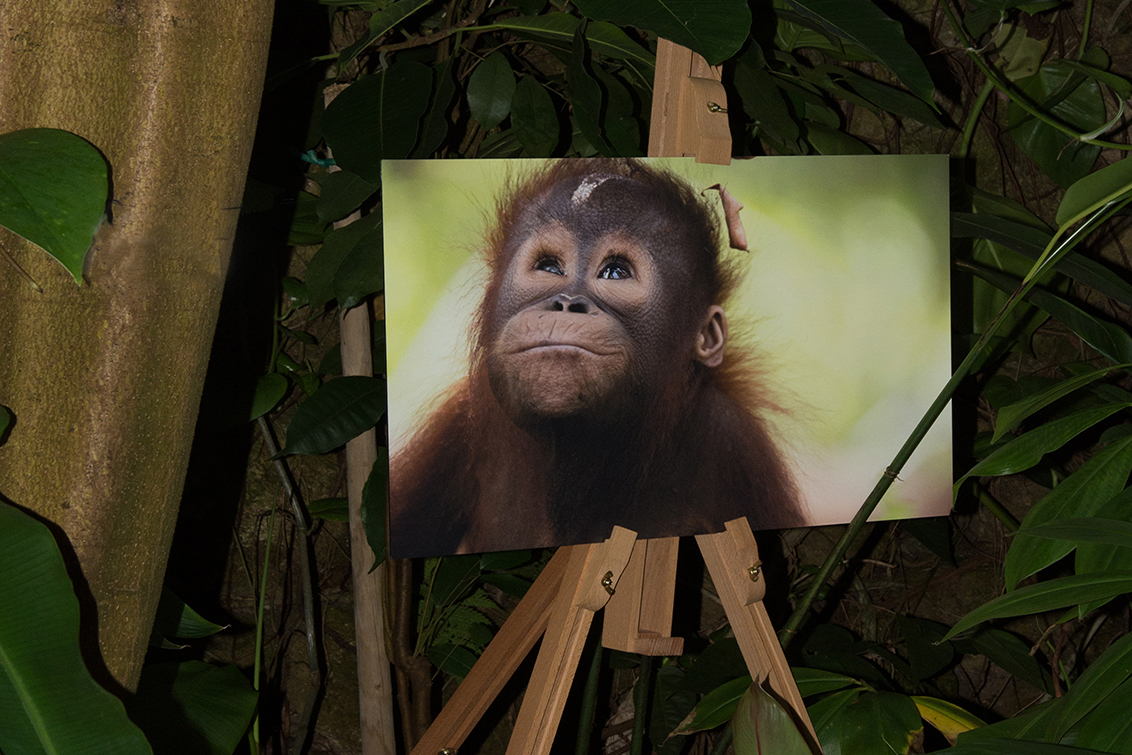
January 2021 - June 2021
To mark its 15th anniversary, the Zurich-based organisation Borneo Orangutan Survival (BOS) Switzerland is presenting a high-profile photo exhibition entitled ‘We are the forest’ to draw attention to the beauty and endangerment of the Indonesian rainforest. There will be 49 award-winning photos by 11 wildlife nature photographers on display here in the Botanical Garden and the Museum of Anthropology at UZH. Fat fruits for orangutans (PDF, 237 KB)